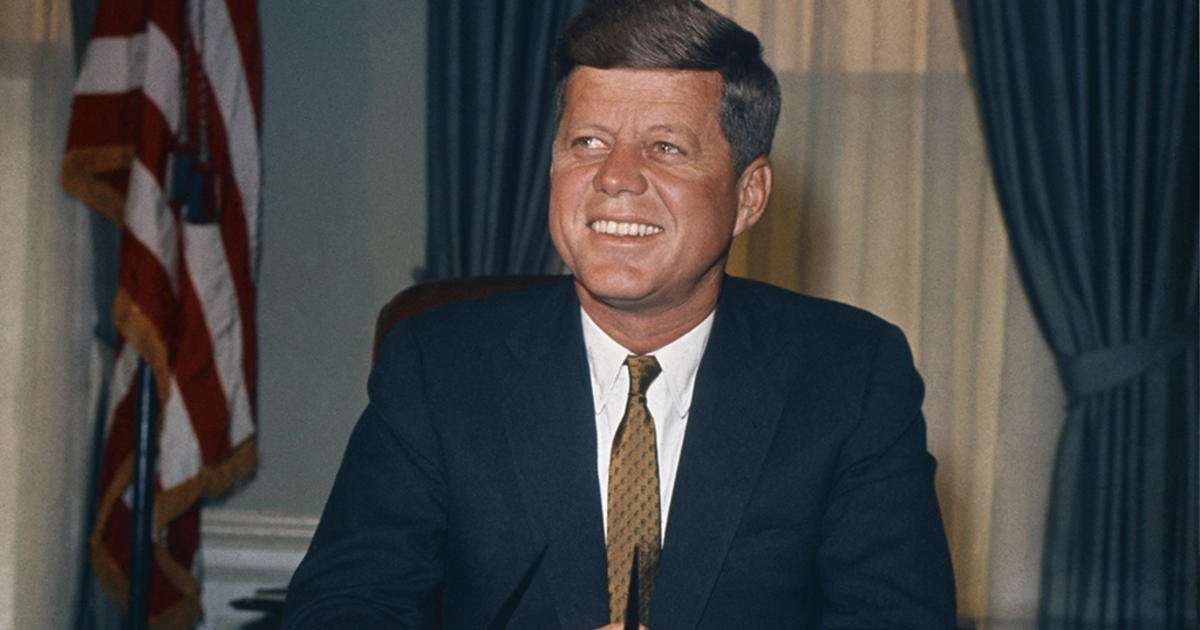The Mary Ferrell Foundation, a nonprofit organization and online database containing the most comprehensive archive of records pertaining to the assassination of John F. Kennedy, has sued President Biden and the National Archives and Records Administration for postponing the release of roughly 15,000 documents concerning the former president's murder.
The claim, filed in San Francisco federal court on Wednesday, alleges that federal officials have acted outside the law in their failure to make those redactions available to the public, thereby "depriving" researchers and historians of opportunities to learn about the JFK assassination. Almost three years into his presidency, Kennedy was fatally shot on live television while riding in a motorcade through Dallas, Texas, on Nov. 22, 1963, in what is considered the most infamous and widely discussed political assassination of the 20th century.
A lengthy federal investigation found former U.S. Marine Lee Harvey Oswald solely responsible for the shooting, but murky details about the circumstances of JFK's death invited a number of conspiracy theories and ongoing conjecture from academics, authors and filmmakers as well as the general population. Rising public interest in the assassination records, plus speculation about a rumored government cover-up, prompted the passage of the President John F. Kennedy Assassination Records Collection Act in 1992, mandating the eventual publication of all unreleased documents.
That law, which was signed by former President George H.W. Bush, originally established an October 2017 deadline for the federal government to publish all remaining documents related to the assassination. That initial deadline was effectively pushed by then-President Donald Trump, who at the time ordered the release of about 2,800 previously unseen files but withheld thousands of others for national security reasons, saying they needed further review.
Then, in a memo issued last October, Mr. Biden announced another delay and set a new deadline for the records' release, which now falls on Dec. 15. The pandemic had prevented the national archivist from conducting its review as planned, according to the White House, and finishing the job would require more time than expected. Biden cited security concerns as the basis of his decision to support the archivist's request to postpone.
"Temporary continued postponement is necessary to protect against identifiable harm to the military defense, intelligence operations, law enforcement, or the conduct of foreign relations that is of such gravity that it outweighs the public interest in immediate disclosure," he wrote, referencing a portion of the JFK records act that allows continued postponement for those reasons, as long as there is "clear and convincing evidence" for the delay.
However, the Mary Ferrell Foundation still claims that Mr. Biden and NARA failing to publish redactions along the records act's initial timeline breached its mandates.
"These failures have resulted in confusion, gaps in the records, over-classification, and outright denial of thousands of assassination-related files, five years after the law's deadline for full disclosure," the organization said in a statement.
Wednesday's lawsuit seeks a judicial order to either force the government to make unreleased JFK assassination records available to the public, or otherwise conduct a thorough review of all undisclosed documents using a specific set of criteria outlined in the 1992 law. While the suit acknowledged that the act allowed for postponement on the basis of national security, it alleged that federal officials have not followed the law's standards for what constitutes "clear and convincing evidence" of potential consequences that could come with releasing the documents.
"In explaining the JFK Act's stringent declassification standard, Congress said when an agency presented evidence of identifiable harm that would result from disclosure, the identifiable harm 'had to consist of more than speculation,'" the lawsuit states. "Records could not be postponed because of 'some conceivable or speculative harm to national security. Rather in a democracy the demonstrable harm from disclosure must be weighed against the benefits of release of the information to the public.'"
The lawsuit also alleged that redactions to some of the previously released documents were "significant and unwarranted," and listed records on Oswald, Fidel Castro and the Bay of Pigs invasion involving federal bureaus like the Central Intelligence Agency and Department of Defense. It additionally claimed there are missing or outstanding records involving those agencies and the Federal Bureau of Investigation, which were allegedly requested by the Assassination Records Review Board that preceded NARA.
A spokesperson at the CIA responded to the lawsuit in a statement to CBS News on Wednesday, saying, "The CIA continues to engage in the established process to determine the appropriate next steps with respect to any previously-unreleased CIA information in the JFK Act collection, in accordance with the JFK Act and President Biden's October 2021 memorandum."

zakificus on October 19th, 2022 at 15:47 UTC »
Could be something like one of the methods they used during the investigation is still being used today, so they don't want to reveal it.
There was a thing not too long ago, where 'invisible ink' was involved, the secret itself wasn't really a big deal to national security, but letting people know about it would give adversaries a reason to look for it.
So only once we stopped using the 'invisible ink message delivery system' did they release secrets that involved using it.
Lily_Loud_Cat on October 19th, 2022 at 15:32 UTC »
They're being sued because they are delaying the release of the records, again.
The previous administration delayed the release of all of the records as well.
The new deadline is set for Dec. 15.
NomNom83WasTaken on October 19th, 2022 at 15:24 UTC »
Nearly 60 years later and the documents still contain information that could harm national security and foreign relations. Wild.